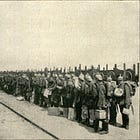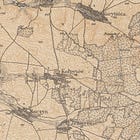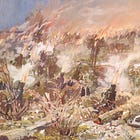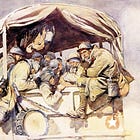Into the Woods
Diary of a Stosstrupp Leader (Part 5)

A verbatim translation of a portion of a diary found in the German Federal Archives, this post follows:
Please note that the names of places mentioned in this post reflects present-day usage. The names given in the diary, which often sport spellings that differ from those of the maps provided with this series, appear within parentheses.
10 October 1916
In the camp in the woods, each squad got a good shelter. We got food, bread and marmalade. (Butter seems to have been in short supply.) Each man also got a quarter liter of red wine.
11 October 1916
I spent the morning in the company office and retrieved my backpack. After lunch, I went for a walk with Lieutenant Rudloff. Pay call. I got two letters from home and wrote two.
12 October 1916
From 08:00 to 09:00, we cleaned our rifles.
From 09:00 to 12:00, we laid new joists in our shelter.
In the afternoon, we dug communications trenches.
13 October 1916
In the morning, we went to the delousing station.
In the afternoon, we assembled Spanish riders.
In the evening, my squad took the Spanish riders (that we had just built) to the front.
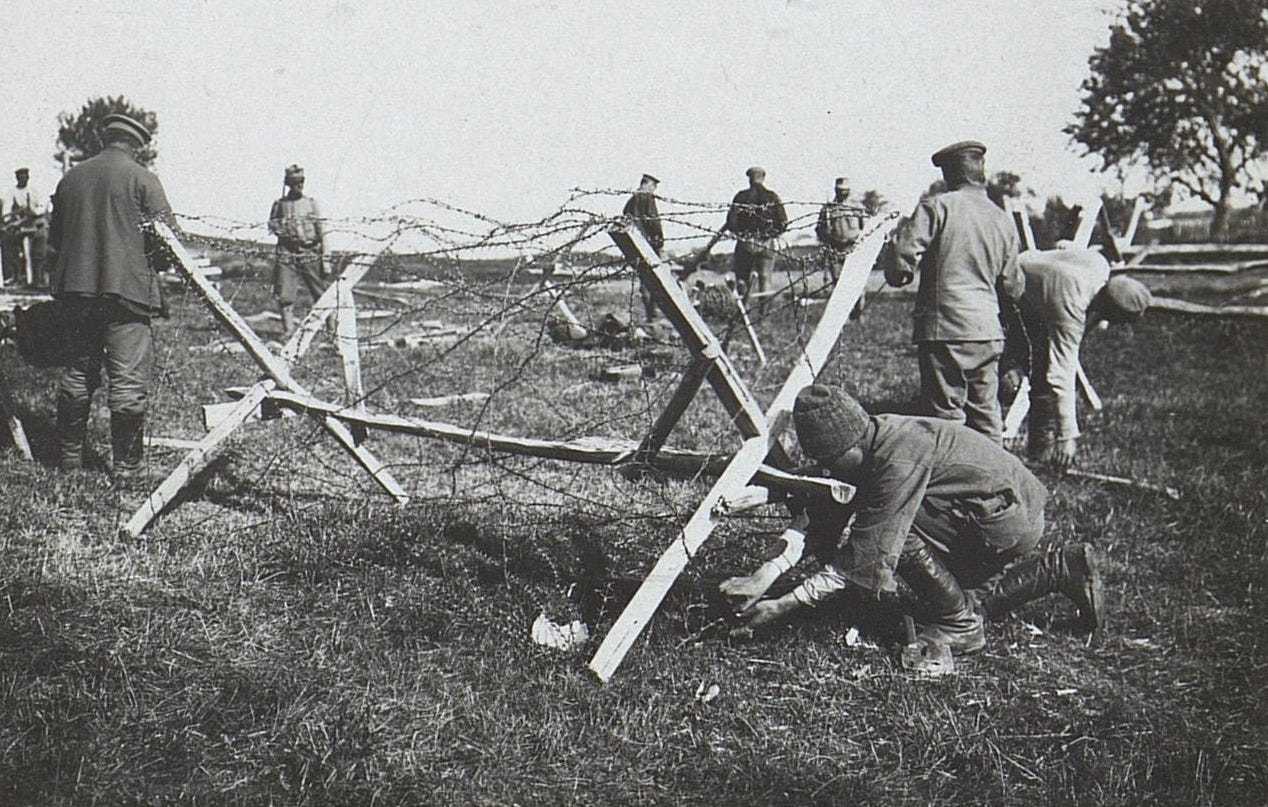
14 October 1916
I stood rifle inspection, was transferred to the Sixth Squad, and received mail.
From 06:30 to 10.00 (in the morning), we reinforced communications trenches and emplaced Spanish riders. Heavy infantry fire, from the side and the front, fell on our connecting trenches.
At 05:30 (in the afternoon), we took up positions in trenches, armed with rifles and hand-grenades, because we had heard that the Russians planned to explode a mine (under our position).
This did not take place, either on this night or subsequently, despite many warnings from the wire-tapping service.
15 October 1916 (Sunday)
A beautiful autumn day, typical of Volhynia (the region in which Infantry Regiment 97 was serving.)
Lieutenant Rudloff and I enjoyed a bit of pistol practice.
In the afternoon, we went into our new position, which lay to the left of the old one. At 06:00 in the evening, our company moved forward to relieve another. My squad became part of the reserve, where it serves as a ‘working squad’. Our shelters were good, but lacked windows, doors, and ovens.
to be continued …
Source
The text comes from Alwin Lydding Meine Kriegstagbuch (My War Diary), unpublished manuscript, Bundesarchiv (German Federal Archive) N 382/1
For Further Reading




